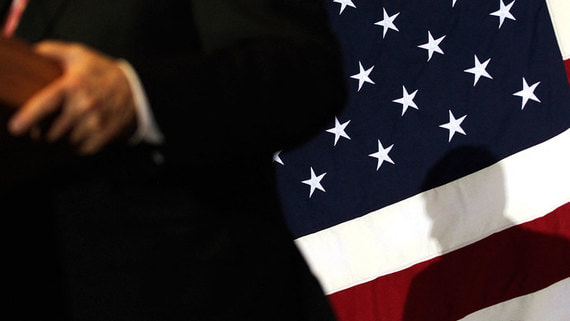The US is building an intelligence network to counterbalance China
[ad_1]

The United States has decided to expand intelligence cooperation with a number of states in Asia in order to use this network to more effectively counter threats from China. Bloomberg reported this on October 5, citing anonymous American officials.
In particular, the US has developed an intelligence sharing agreement within the framework of QUAD (Quadrilateral Security Dialogue, which includes India, the US, Japan and Australia).
The American network of partnerships also includes intelligence cooperation between the United States, Japan and South Korea, which became possible after Seoul and Tokyo agreed on March 16, 2023 to renew the General Intelligence Sharing Agreement (GSOMIA) in full (previously it was interrupted due to -for disagreements about compensation for victims of forced labor during World War II).
Finally, trilateral intelligence cooperation between the United States and Japan is also developing with the Philippines.
Next, Washington intends to focus on the issue of developing intelligence partnerships in Asia on a bilateral track, establishing cooperation with Japan, India and Vietnam to increase “resistance to offensive operations” of the PRC in the cyber sphere, Bloomberg writes. One of the sources clarified that this is primarily about information exchange.
Representatives of the mentioned states also refused to comment on the situation to Bloomberg.
The development of intelligence cooperation has already allegedly brought benefits to some Asian countries. In March 2023, US News & World Report wrote, citing sources, that India at the end of 2022 was able to repel an attack by the Chinese military in the disputed territory in the Himalayas thanks to American intelligence.
Such efforts by Washington are only part of a broader program to expand cooperation with Asian states, which is caused by growing concern about threats from China. The same factor is pushing states such as the Philippines and South Korea, which previously sought to maintain a greater distance on sensitive issues, to move closer to the United States. In 2022, the QUAD countries have already agreed to develop an “Indo-Pacific Partnership for Maritime Domain Awareness”, which should allow the four states to see a “comprehensive picture” of events in the maritime space in a format close to real time.
In addition, the United States continues traditional interaction in the Five Eyes alliance, which also includes Australia, Canada, New Zealand and the United Kingdom. In September 2021, it was reported that India, South Korea, Japan and Germany were invited by the US House of Representatives to join it.
US activity in Asia has been growing in recent years in all areas – from humanitarian to military exercises, but this is due to the increasing pace of confrontation and the spinning of the flywheel of the Cold War with China, says RIAC expert Alexander Ermakov. India is ready to cooperate with the United States in the area of intelligence, primarily against China, he says.
Cooperation within the QUAD framework is not developing quite according to the scenario that the Americans initially wanted to see, implying the cobbling together of a tough anti-Chinese bloc, and it is India that is smoothing out the rough edges and diluting the agenda with other issues, says Gleb Makarevich, junior researcher at the Center for the Indian Ocean Region of the IMEMO RAS. As a result of such actions, the Americans began to consider other options for security cooperation in Asia, including creating AUKUS and a triangle with South Korea and Japan.
At the same time, mutually beneficial cooperation between intelligence services within QUAD can indeed be carried out, but the expert doubts that it was American information that helped India at the end of 2022 in the conflict with the PRC: in practice, in the Himalayas, all issues are resolved at the junior and middle level, and the federal center finds out about such clashes only after they are over.
[ad_2]
Source link








